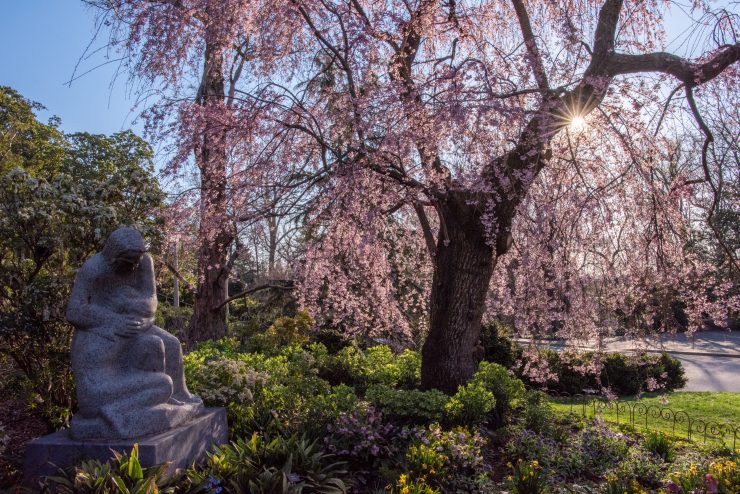Holy Saturday

John 19:38-42
After these things, Joseph of Arimathea, who was a disciple of Jesus, though a secret one because of his fear of the Jews, asked Pilate to let him take away the body of Jesus. Pilate gave him permission; so he came and removed his body. Nicodemus, who had at first come to Jesus by night, also came, bringing a mixture of myrrh and aloes, weighing about a hundred pounds. They took the body of Jesus and wrapped it with the spices in linen cloths, according to the burial custom of the Jews. Now there was a garden in the place where he was crucified, and in the garden there was a new tomb in which no one had ever been laid. And so, because it was the Jewish day of Preparation, and the tomb was nearby, they laid Jesus there.
On Holy Saturday, we find ourselves in that liminal space between the already but not yet. Jesus has been crucified in a horrific, public, and undeniable way. He is dead beyond a shadow of a doubt, but what about his promise that he would rise again? Jesus told his disciples, his closest friends and followers, that he would be raised in three days, but the disciples are nowhere to be found. Instead, we encounter Joseph of Arimathea and Nicodemus, as reported in the Gospel of John, there to take Jesus’ lifeless body to a new tomb for a proper Jewish burial. Did they believe Jesus would rise again? Do you?
Everything we know with certitude about Joseph of Arimathea comes from scripture. We know his interaction with Pilate ensured a burial for Jesus’ crucified body. When all the disciples went into hiding for fear of the authorities, Joseph distinguished himself by showing courage in going straight to Pilate to ask for permission to remove Jesus’ body from the cross in accordance with proper Jewish practice – providing a timely and proper burial. Joseph also offered his own newly dug tomb for Jesus, preventing further desecration of our Lord.
This gospel story is depicted in the Cathedral’s only mural, found in the Chapel of St. Joseph of Arimathea. The mural invites us more deeply into the story. Do we believe that the death and darkness that surround us today in a very real way will in fact yield to resurrection and new life? How will this liminal time change us—this time between the already but not yet? Will we proclaim once again that we are Easter people? C.S. Lewis wrote, “I believe in Christianity as I believe that the sun has risen; not only because I see it, but because by it I see everything else.”
prayer
Collect for Holy Saturday
O God, Creator of heaven and earth: Grant that, as the crucified body of your dear Son was laid in the tomb and rested on this holy Sabbath, so we may await with him the coming of the third day, and rise with him to newness of life; who now lives and reigns with you and the Holy Spirit, one God, for ever and ever. Amen.